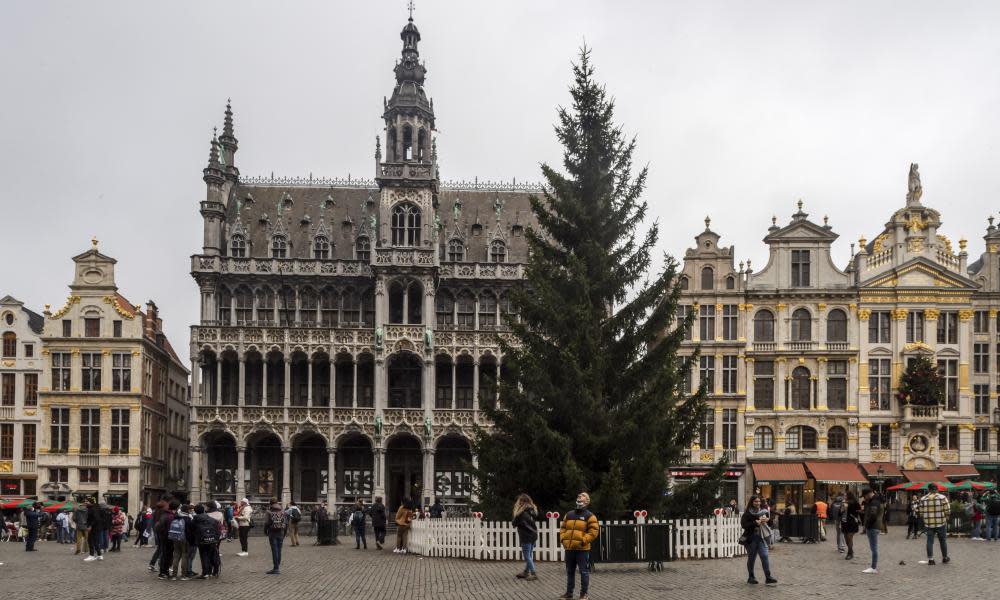First European case of new Covid variant detected in Belgium

The first European case of the new B.1.1.529 variant has been detected in Belgium, as the UK imposed new restrictions on travel from South Africa and five other nearby countries because of the risk that it may evade vaccines.
Just hours after the UK health secretary, Sajid Javid, warned it was highly likely the new variant has spread further than where it was first discovered in South Africa, Belgium recorded a case in a woman who had recently travelled from Egypt via Turkey.
The case was identified in an unvaccinated young adult woman who developed mild flu-like symptoms 11 days after travelling and had no links with South Africa or other countries in southern Africa.
The identification of the variant in Europe raises questions about whether restrictions on travel from South Africa, Botswana, Lesotho, Eswatini, Zimbabwe and Namibia will be enough to stop the variant reaching the UK.
Javid said on Friday that he was “concerned this new variant may pose substantial risk to public health” because of the fear it may escape current vaccines.
He said there were no known cases yet in the UK but precautions were being taken because current vaccines “may be less effective against it” and it may be more transmissible than other variants.
Flights from six countries – South Africa, Botswana, Lesotho, Eswatini, Zimbabwe and Namibia – have been temporarily banned from midday on Friday until hotel quarantine is set up again, costing £2,285 for one adult.
From 4am on Sunday, UK and Irish nationals arriving from those countries will be required to book and pay for a government-approved hotel quarantine for 10 days. Non-UK/Irish nationals will be banned from entry.
Related: What do we know about the new ‘worst ever’ Covid variant?
Any UK nationals who arrive from those countries before Sunday, or who have arrived in the last 10 days, must get day two and day eight PCR tests even if they are vaccinated, and isolate at home along with the rest of the household. NHS test and trace will be contacting any travellers in this category and asking them to get PCR tests and undergo isolation.
Javid said the government would not do anything to help British nationals get back from South Africa before midday and argued that the best thing for anyone who was now on one of the red list countries was to make their own way back and enter hotel quarantine from Sunday.
He acknowledged thousands of tourists and other travellers were likely to be hit by the restricitions, involving paying many thousands of pounds in hotel quarantine bills.
“I understand whether it’s sports teams or the thousands of British tourists and others that currently find themselves in South Africa, Botswana and these countries, this is very difficult news but I hope they will understand,” he said.
Those who cannot pay may be eligible for hardship arrangements, which include repayment plans or fee waivers in “exceptionally limited circumstances”.
The rules apply to England, Wales, Scotland and Northern Ireland as all the devolved nations are aligning on the policies.
Javid said it was a “fast-moving situation and there remains a high degree of uncertainty”. He urged everyone to get their Covid vaccine booster shots as soon as possible.
The health secretary said there were “very live” discussions over the prospect of adding further countries to the travel red list.
He was pressed on whether further public health measures – such as mandatory masking in public places and a return to social distancing – were necessary but insisted that this was not needed for now.
“The plan A, the policies that we put in place, they remain the policies that I think we need at this time,” he said. “[The questioner] won’t be surprised to know we do keep this under review and if we need to go further, we will.”

 Yahoo News
Yahoo News 
